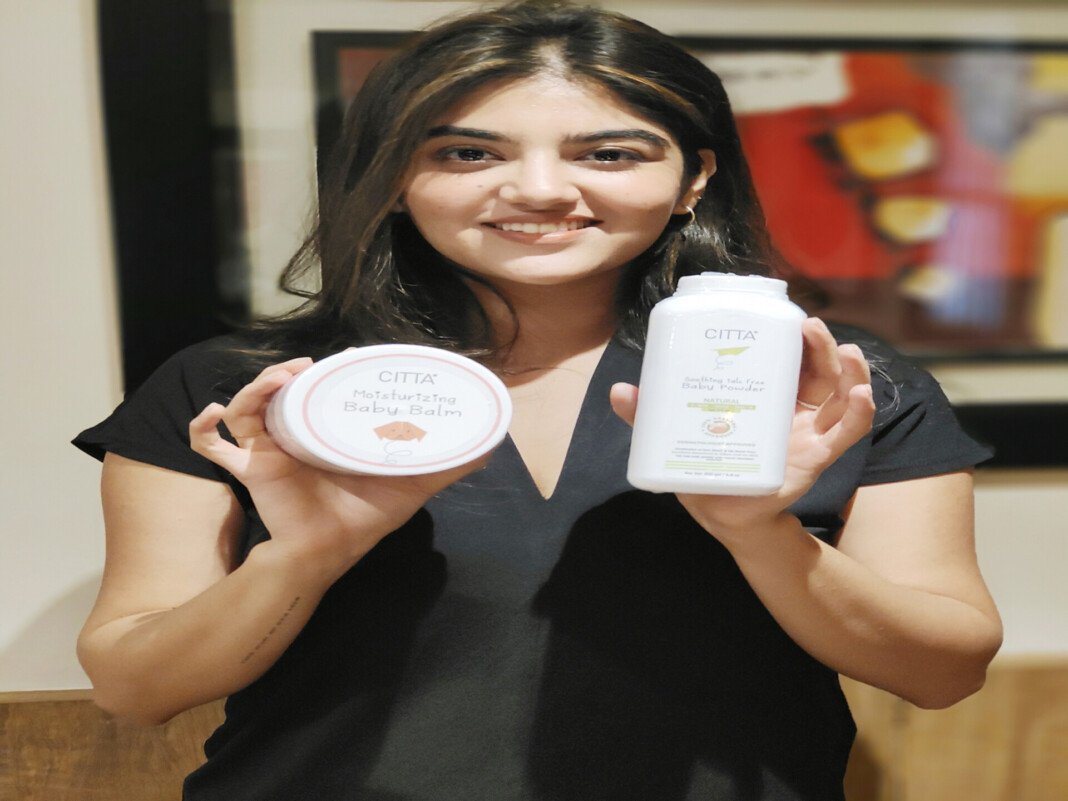By: Akanksha Sharma
When it comes to skincare, it’s easy to assume that a one-size-fits-all approach will suffice. After all, skin is skin, right? Well, not quite. The truth is that kids and adults have different skincare needs, and these distinctions are more than just age-related.
Many parents switch to using products meant for grown-ups when their children turn six. As parents, our top priority is our kids’ health, so it’s important to grasp the specific requirements of their growing skin and hair. Their skin and hair are quite different from those of adults, and using adult products can be harmful.
Kids’ skin: Like a delicate canvas
To understand why it’s important to give special care to children’s skin, we need to understand how different it is from adults’ skin. A child’s skin is thinner, more sensitive, and has a higher surface area compared to their body weight than an adult’s. Their natural protective barrier, made up of lipids, is not fully developed. This means their skin struggles to hold onto moisture and is more likely to get dry, irritated, and harmed by things like sunlight and pollution. Plus, a child’s skin is more acidic, which helps keep away harmful bacteria but also makes it more sensitive to changes and potential damage. Their hair is finer and less oily, which makes it more prone to tangling and breaking.
Why kids shouldn’t use grown-up products
The skincare and hair care products for adults usually have harsh chemicals like parabens, sulfates, silicones, talc, and phthalates. These things might be too strong for a kid’s soft skin and hair. Things like retinoids, salicylic acid, and strong smells can remove the skin’s natural oils, mess up its balance, and make kids get allergies, rashes, or even chemical burns. Also, many adult products are made to solve problems that come with getting older, like wrinkles or pimples, which kids don’t need to worry about. Selecting age-appropriate items for children is very important. Kids between 5 and 10 years old should use products made just for their age group, like those meant for babies from 0 to 10 years old. These products are created with the unique needs of growing kids’ skin and hair in mind, and they offer gentle care without harsh chemicals. They have milder ingredients that ensure children’s skin stays protected and healthy. A child’s skin is more likely to have changes in its pH level compared to an adult’s. Naturally, a child’s skin is a bit more acidic at around 5.5, which acts as a shield against harmful bacteria. Using adult products can upset this delicate balance, leaving their skin exposed and possibly causing dryness, itching, infections, or even eczema.
Why adults need different products
Ageing and collagen production
One of the primary reasons adults require specialized skincare products is the ageing process. As we grow older, our skin undergoes a series of changes. Collagen production decreases, leading to the formation of fine lines and wrinkles. Adult skincare products are formulated to address these concerns by incorporating ingredients like retinoids, hyaluronic acid, and peptides, which can help boost collagen production, reduce wrinkles, and improve skin elasticity.
Sun damage
Adults are more likely to have accumulated sun damage over the years. Prolonged sun exposure can lead to issues like hyperpigmentation, sunspots, and an increased risk of skin cancer. Skincare products for adults often contain SPF (sun protection factor) to prevent further damage and ingredients like vitamin C, aloe vera, rose, and natural oils which can help to reverse some of the existing damage.
Hormonal changes
Hormonal changes during adulthood, particularly in women, can lead to various skin issues like acne, dryness, or sensitivity. Specialized products can target these problems effectively, containing ingredients such as natural oils, shea butter, vitamin E, and soothing agents like aloe vera and rose.
The best ingredients for kid’s skin and hair care
For kids between 5 and 10 years old, it’s crucial to pick items with gentle, natural components. Ingredients such as almond oil, olive oil, basil oil, rice protein, aloe vera, coconut oil, shea butter, turmeric oil, and oats are not only good for their skin and hair but also very mild. These ingredients moisturize, shield, calm, and help maintain the natural moisture barrier of their skin. This promotes healthy growth and makes these products perfect for taking care of their young skin and hair.
Aloe Vera: Aloe vera is soothing and hydrating, making it an excellent choice for treating minor skin irritations or sunburns.
Shea Butter: Shea butter is a natural moisturizer that helps keep children’s skin soft and hydrated.
Oat Extract: Oat extract can relieve itching and dryness, making it ideal for kids with eczema or sensitive skin.
Coconut Oil: Acts as an anti-bacterial and natural moisturizer, coconut nourishes the skin deeply and keeps it moisturized while preventing bacterial growth
Turmeric Oil: Tumeric Oil has natural anti-microbial and anti-inflammatory properties that prevent rashes and ease skin irritation.
Checking labels and avoiding harmful ingredients
When choosing skincare and hair care products for kids, it’s vital to stay away from tough chemicals such as sulfates, talc, asbestos, silicones, mineral oils, parabens, and strong scents. These elements can cause skin irritation and harm their overall well-being. Go for products that don’t have harmful extras to maintain a child’s skin health and protect them from the bad effects of these dangerous chemicals.
Parabens: Parabens are preservatives linked to hormone disruption and skin irritation. Look for products labelled “paraben-free.”
Sulfates: Sulfates can be harsh on young skin and may irritate. Opt for sulfate-free cleansers.
Phthalates: Phthalates are known endocrine disruptors and should be avoided in kids’ products.
Synthetic Fragrances: Artificial fragrances can cause skin sensitivities. Look for products that are fragrance-free or scented with natural essential oils.
While adults and children both benefit from proper skincare routines, the products they use should be tailored to their specific needs. Adults require formulations that address ageing, sun damage, and hormonal fluctuations, while kids benefit from gentle, natural ingredients that are free from harmful chemicals. It’s essential to read labels and avoid ingredients that could be potentially harmful to children’s sensitive skin, ensuring that they receive the best care and protection for their skin’s unique requirements. After all, our children deserve the very best, and that begins with caring for their delicate skin and hair with the utmost attention and care. (The author is the Co-founder & CEO- CITTA)







